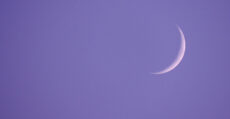Saudi Arabia’s grand mufti yesterday reiterated Islam’s total opposition to terror and called upon the world’s decision-makers and politicians to do justice to the Islamic nation.
Delivering his annual sermon to nearly two million pilgrims who had assembled on the plain of Arafat, Sheikh Abdul Aziz Al-Asheikh emphasized that terror and violence must be “mercilessly” crushed.
“Is it justice to blame a nation on the basis of the opinion of its rivals and enemies, ignoring the greatness of that nation, its roots, rulers, scholars and books?” the mufti asked. “Islam has forbidden violence in all its forms. It has forbidden hijacking airplanes, ships and other means of transport and has forbidden all acts that would undermine security,” he told the faithful.
“God says the penalty for those who fight God and His Prophet and spread violence and terror is to be killed, crucified or have their hands and legs chopped off,” he said.
The mufti added, “Islam has also called for the killing of anyone who attempts to undermine legitimate rulers or divide Muslims.”
He then questioned why Islam was branded by some as a religion of terror given its strong opposition to terror. “You must know Islam’s firm stance against all these terrible crimes which have been attributed to it. The world must know that Islam is the religion of peace and mercy and goodness; it is the religion of justice and guidance. It is a religion that prohibits all forms of injustice and the shedding of blood without genuine reason,” he explained.
“Islam has made the fulfillment of treaties and pledges compulsory and has given importance to protecting the blood of allies,” he said.
Sheikh Abdul Aziz, the Kingdom’s highest religious authority, said a true Muslim who intended to serve Islam would never try to undermine the Ummah. “Jihaad does not mean shedding the blood of Muslims or killing peaceful people or destroying their properties,” he said and urged Muslims to act prudently and wisely and not be driven by emotions or passions.
“Jihaad was made lawful not to shed blood or to take revenge but as a kind of worship of God and one of the religious duties for defending the Islamic nation,” he pointed out.
The mufti urged those who raise the slogan of jihaad to consider carefully for a time if what they were doing was really in accordance with the teachings of the Qur’an and Sunnah. Jihaad has a wide meaning in Islam, he said.
Calling people to God’s message, promoting good relations between Muslims and carrying out one’s duties are part of jihaad. He condemned the attitude of some extremists who brand others infidels or enemies of God.
The mufti repeated his strong opposition to women mixing freely with men. “Women should be grateful for the respectful role accorded to them by Islam as mothers,” he said. “Their dialogue must remain from behind the veil,” he said.
Sheikh Abdul Aziz highlighted the significance of ‘Arafah prayers. “’Arafah Day is the most blessed day of the year as God forgives the sins of a large number of people on that day.”
He urged Muslims to strengthen their faith in God and live in accordance with His teachings for success in this world and the hereafter. Islam is a complete way of life and is suitable to all times and places. “If anyone accepts something other than Islam as his religion, it will not be acceptable,” the mufti said quoting from the Qur’an.
Saudi authorities took unprecedented security measures to protect the pilgrims who flocked to ‘Arafah for the climax of the Hajj.




